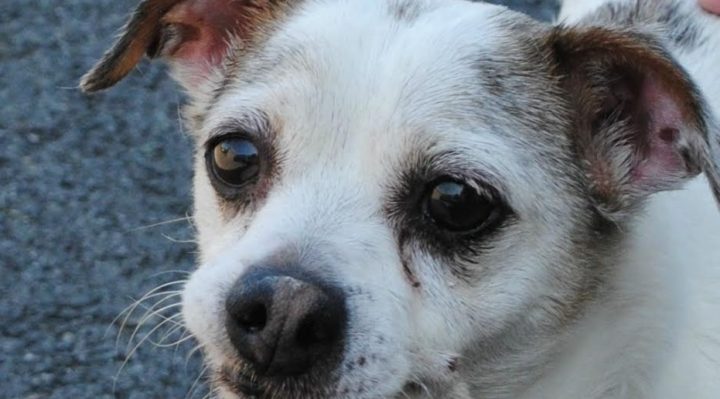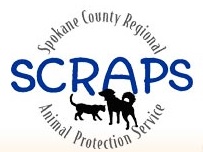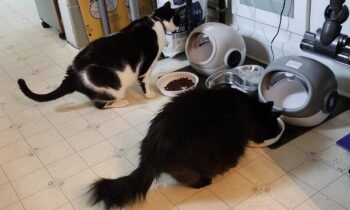
 Have you noticed your loved one’s sneezing, having difficulty breathing or pawing their eyes and rubbing their face on the carpet or furniture? These are all signs that your pet is having issues with our air quality.
Have you noticed your loved one’s sneezing, having difficulty breathing or pawing their eyes and rubbing their face on the carpet or furniture? These are all signs that your pet is having issues with our air quality.
“If you are experiencing stinging or burning in your eyes or throat, so is your pet,” according to Nancy Hill, Executive Director of SCRAPS. “Keeping your pet inside, away from the heavy smoke, is the best way to protect them.”
People often think that domestic pets have some natural protections against smoke, but they don’t. Their lungs are similar to humans and this heavy smoke can cause damage particularly if your pet already has issues such as lung or heart disease. Also, short nosed animals such as pugs and shitzus can have a harder time breathing in adverse conditions but large animals such as horses and cows adapt to poor air quality better than smaller pets.
For pet owners who must exercise their pets or leave them outdoors, SCRAPS has some tips:
- Look for a time of day when the smoke is less heavy. Smoke worsens at night.
- Consider a doggie day care.
- Shorten your pet’s exposure to the smoke with a quick walk.
- Ask a friend or family member to watch your pet.
- Try exercising your active dog on a treadmill instead of walking him around outside.
- In the house, keep your windows closed and use your air conditioning instead.
Pet owners should also be considering what to do if they need to evacuate or need to shelter in place because of a natural or chemical disaster. SCRAPS has information to help prepare for either event available on our website at spokanecounty.org/SCRAPS.
About SCRAPS: Spokane County Regional Animal Protection Service (SCRAPS) is a progressive municipal animal care and protection agency serving the unincorporated areas of Spokane County, the cities of Spokane, Spokane Valley, Cheney, Deer Park, Fairfield,, Liberty Lake, Medical Lake, Millwood, and Rockford. SCRAPS has deputized animal protection officers extensively trained to enforce animal laws and respond to emergency situations. SCRAPS is also active in educational and community outreach programs and is dedicated to its continued investment in innovative behavioral programs.
SOURCE – SCRAPS release, September 2017



